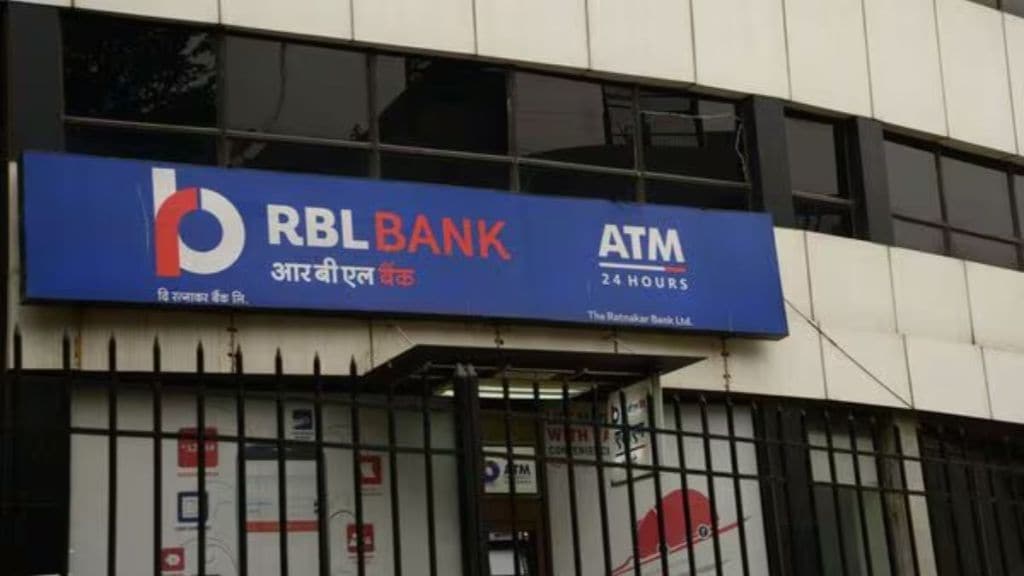In recent months, market chatter has centered on the possibility of Emirates NBD, the Dubai‐based lender, acquiring a significant stake in RBL Bank — potentially becoming the largest shareholder or even taking control. Year-to-date, the bank’s stock has surged close to 90%, from Rs 158 on December 31, 2024.
The enthusiasm had waned a bit after RBL denied media reports in July about acquisition by Emirates, but it has got a fresh lease of life after reports resurfaced this week suggesting the whispers may be edging closer to reality. As a result, the bank’s stock hit a new 52-week high of Rs 305 per share on Wednesday even though the bank has clarified that “it is not aware of any information (on Emirates NBD) that has not been announced to the exchanges or which requires disclosures.”
A spokesperson for Emirates NBD also declined to comment. But RBL Bank did not entirely dismiss the possibility of a strategic investment.
So what makes RBL an attractive target? Unlike many Indian banks that are anchored by legacy promoters, RBL’s ownership is entirely publicly held by domestic and foreign institutions, mutual funds and retail investors. This clean cap table offers strategic investors a rare opportunity to invest without the burden of entrenched control. Without a fortress promoter, there’s less resistance from a family or original founding block to being ousted or diluted.
Further, as a mid-sized lender, RBL is large enough to be systemically relevant but small enough to be nimble and in need of capital support, especially in a regulatory environment that increasingly favours deep-pocketed investors.
The change in regulatory stance that supports bigger financial institutions and banks to acquire or have significant shareholding in mid-sized banks has also helped. In the past decade, the Reserve Bank of India (RBI) has eased rules when Prem Watsa’s Canadian Fairfax Financial Services picked up a 50% stake in CSB Bank and Singapore-based DBS’s India entity, DBS India, merged with Lakshmi Vilas Bank.
More recently, the restructuring of YES Bank, where the RBI welcomed Japanese giant Sumitomo Mitsui Banking Corporation (SMBC) as a strategic investor, is another example of the regulator’s growing comfort with takeovers. “From a stance of non-promoter-led institutions, the RBI is actively encouraging strategic investors with deep pockets to step in, not necessarily with full control, but with enough influence to stabilise and strengthen these banks, especially smaller banks that often face structural vulnerabilities,” said an analyst from a foreign bank.
He added that the shift reflects the RBI’s broader transition from a rigid, rule-bound model of prescription banking to a more flexible, principle-based framework that prioritises governance, resilience and investor credibility.
On Emirates NBD’s interest in RBL Bank, he said that in general, India is actively seeking foreign investments, and global players are no longer just testing the waters, they are seeking meaningful footholds. While India allows 74% foreign investment in private banks, the RBI limits the shareholding of a single foreign institution to 15% unless it grants exceptional approval.
As far as numbers go, among private sector bank peers, with similar asset size RBL Bank has the lowest return on assets (ROA) and capital to risk asset ratio (CRAR). As of Q1 FY26 ended June 30, 2025, RBL Bank has a networth of Rs 15,158 crore, with a deposit and advance base of Rs 1,12,734 crore and Rs 94,931 crore, respectively.
The bank reported a net profit of Rs 200 crore, with a net NPA of 0.45% and a return on assets (ROA) of 0.56%. On a trailing 12-month basis, the stock is trading at a price-to-book (P/BV) of 1.18 times and price-to-earnings (PE) of nearly 35 times.
“Under Indian banking norms, no merger or acquisition can be publicly announced without prior consent from the RBI. The regulator undertakes exhaustive due diligence, evaluating the investor’s financial strength, governance plans, and systemic impact. The fact that rumours about Emirates NBD have been so strong reflects some amount of both regulatory and political comfort with the deal,” said a head of research from a domestic brokerage.
Sources say Emirates NBD is looking to buy up to a 25-26% stake in RBL Bank and thereafter make an open offer for another 25% as per regulations to take the overall stake to 50-51%.
The acquisition by Emirates NBD, if it fructifies, will signal a bold move toward cross-border integration and long-term value creation. The diplomatic dimension adds another layer of significance. India’s ties with the UAE have deepened across trade, energy, and financial services.
Experts say for Emirates NBD (and others eyeing India), RBL offers an entry point into a large, growing banking market. India is one of the fastest-growing major economies, and the banking sector offers long-term scale opportunities. Additionally, RBL’s footprint, branch network, retail and MSME client base, and local regulatory licences are attractive assets. A foreign bank might see synergies in cross-border remittances, trade finance, NRI banking, and linking Gulf-India capital flows.


